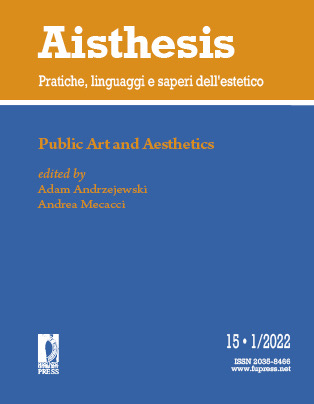The Nanjing Massacre Memorial and Angelus Novus: Ephemera, Trauma, and Reparation in Contemporary Chinese Public Art
Published 2022-08-02
Keywords
- Public art,
- Memory,
- Monument,
- Trauma,
- Reparation
How to Cite
Abstract
What is the nature of memorials? Traditionally, memorials have been conceptualized as lasting entities preserving memories of our shared pasts. This paper challenges this view. My aim is to retheorize our practices of memorialization by examining the role that ephemerality plays in experiential memorials. Rather than fixed structures of meaning, experiential memorials are unstable careers whose significance depends on viewers’ performative engagement. I provide evidence for my thesis by developing a critical interpretation of Qi Kang’s Nanjing Massacre Memorial Hall (NMMH) as an example of experiential memorial. The fragmented nature of the here and now frees visitors’ experiences. Like the wind propelling Benjamin’s Angelus Novus into future and progress, the ephemerality of NMMH’s experience unchains its significance from the constriction of dominant narratives of vengeance and resentment. If liberated temporally, the experience of memorials may help us not only to never forget, but also to find reconciliation.


